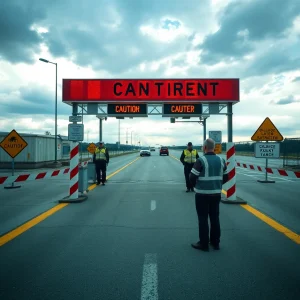Birmingham City Council Takes Aim at Boundaries for Short Term Rentals
The City Council of Birmingham, Alabama, is looking to establish clear boundaries for short-term rentals, a sector that currently operates with minimal regulations outside business licensing and specific zoning provisions under certain situations. Leading discussions for this development is the Birmingham Zoning Advisory Committee, which is preparing a renovated short-term rental ordinance to be presented to the city council within the coming weeks.
Addressing the Unregulated Short-Term Rental Market
For quite some time, Birmingham’s growing short-term rental market has been a subject of controversy among renters, property owners, and neighborhood groups. The lack of specific regulations in the sector has allowed for a surge in property owners letting out their homes as short-term rentals, a trend that has raised concerns over noise, safety, and the neighborhood’s character.
“We’re not sure yet what the final outcome is going to end up looking like,” says City Council President Darrell O’Quinn, “There are a lot of different factors to consider.”
Short Term Rentals: A Boon or a Bane?
While short-term rentals provide an income stream for property owners and offer affordable accommodation options for tourists or visitors, regulation is crucial in maintaining the city’s vibrancy without compromising residents’ quality of life.
These rentals take on a variety of forms, including entire homes that are rented out when owners are away, rooms within a property, or separate structures on lots. While this flexibility appeals to a diverse range of users, it can also exacerbate existing problems such as noise pollution, traffic issues, and lack of parking.
Regulatory Measures on the Horizon
While the details of the proposed regulation are still under wraps, the expectation is that it will address these issues by putting in place clear rules for property owners and renters. Potential regulatory measures could involve safety requirements, noise restrictions, location restrictions, or licensing and registration rules.
Adopting such measures can help manage the short-term rental market efficiently without killing the thriving sector. Regulations may also support other city initiatives, such as boosting Birmingham’s hospitality industry or preserving and promoting its unique neighborhoods.
In Conclusion
Despite the complexity and multifaceted views on this issue, City Council President O’Quinn and the Zoning Advisory Committee are committed to establishing a transparent framework for the short-term rental sector. As Birmingham continues to grow its reputation as a touristic and livable city, good governance in all sectors, including short term rentals, is undoubtedly key for a balanced and sustainable growth.



























